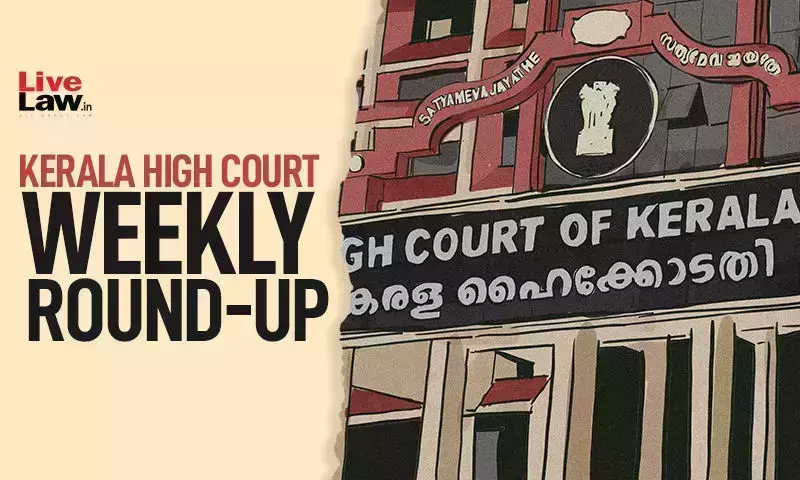Kerala High Court Weekly Round-Up: December 18 - December 24, 2023
Navya Benny
26 Dec 2023 10:59 AM IST

Next Story
26 Dec 2023 10:59 AM IST
Nominal Index [Citations: 2023 LiveLaw (Ker) 738- 759] Badha Ram v. Intelligence Officer 2023 LiveLaw (Ker) 738Ramachandran Potty & Anr. v. Travancore Devaswom Board & Ors. 2023 LiveLaw (Ker) 739XXX v. Union of India & Ors. and connected matters 2023 LiveLaw (Ker) 740X v. Union of India 2023 LiveLaw (Ker) 741Kitex Garments Private Limited Company v. Umaimath 2023 LiveLaw...
